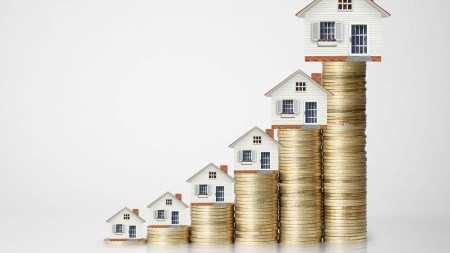Written by Justin Clarke, CEO of Privateproperty.co.za
Most of us look at property as a secure long-term investment, or as a vehicle to provide for us when we retire. But what you may find very confusing are the very differing messages given off by pundits of the various categories of property investment. Estate agents make money out of selling property, and financial advisers make money from selling unit trusts so you can understand the problem.
Without doubt, residential property investment is my favourite option. But it is certainly not for everyone. There are other options designed to take the hassle out of owning physical property, and rounding off the ups and downs of the property cycle.
But let me kick off with owning your own home. While I am scared to even use the words owning your own home and investment in the same sentence, it is an investment and probably the most fundamental investment that you can make. It will, however, almost certainly be a low-yielding investment that can really only be redeemed when you sell, or liquidate the asset. If you really analyse it, you may be better off investing your money elsewhere and renting a similar property.
Economist Erwin Rode is a great protagonist of this theory and will show you that owning a home is much more expensive than renting. While Rode has a good point, I still argue in favour of home ownership. You cannot take an average and apply it to all, and selecting a good home in a good area, and continuing to maintain and improve it over time will provide you with a secure nest-egg for your retirement. It will force you to save as you pay into the bond every month and make improvements as you replace obsolete features.
A home is also a home, a place where you can keep your family safe. And as the value grows over time you can re-finance and take out capital to fund other needs. It is an important part of protecting your wealth but should not be regarded as a hard core investment because it does not generate income.
The first level of real property investment is residential buy-to-let. Almost anyone with good secure employment, a good credit history and a small deposit can enter the business of property investment. What makes this type of investment work is leverage and, from a small deposit, you can use borrowed funds to maximise your return. A small secure apartment in a good area, close to work, shops and good schools, and which can generate good rental is a sure bet.
Currently there is stock on the market for which the rent will cover the bond instalments provided that a small deposit is made upfront. As the property increases in value your actual return can be exceptionally good. Consider the example of a R500 000 townhouse that you secure with a R50 000 deposit. If the price increases to R550 000 in year one, your initial net return on cash employed is 100%.
Commercial, industrial and retail are far more attractive than residential for a few reasons. The most important is the length and value of these leases. A normal commercial lease would not be shorter than three years, compared with a residential lease of one year, and commercial tenants are easier to manage.
Commercial buildings are valued primarily by the value of the leases and discounted cash flow, and of course it is normal to factor in annual increases and push any additional operating costs, taxes and levies onto tenants.
However, investing directly in commercial property is more risky than in residential. You also need to have access to capital. R1-million will buy you a R3-million building if you are lucky – and this is entry-level. But R3-million can turn to six with a well-placed tenant.
The traditional concept of owning the physical property (direct ownership) is the real deal; it is exciting and can produce great returns. But there is a downside. Buildings are not liquid, and cannot be cashed in at any time. Most often when you really need the cash, the market is against you and there is no chance of exiting. Direct ownership is very risky and, if you have a small portfolio, losing a tenant can be a disaster. You also need to have to have very good management to maximise your returns and, for a small operator, this means you will be the key person, requiring serious skills.
Then, there are two types of listed property companies in South Africa: Property Loan Stock (PLS) and Property Unit Trust (PUT). The main difference between PLS and PUT companies is that PLSs pay capital gains tax on profit on the sale of assets, whereas PUTs do not pay corporate or capital gains tax provided that they distribute most of their income to their investors. Over the past five years, the top-performing unit trust was Prudential Enhanced South Africa Property Tracker Fund A with a return of 121%.
Investing in these listed funds will give you exposure to buildings with large capital requirements, such as shopping centres, which require huge amounts of capital but yield great returns. They are considered a safe haven in uncertain times due to their long leases, which cushion market shocks and provide a predictable income stream.
While listed property stocks may not be sexy for the ambitious investor, they provide an opportunity for investors who are looking for good stable returns in the property sector, without the associated hassle of direct ownership.



